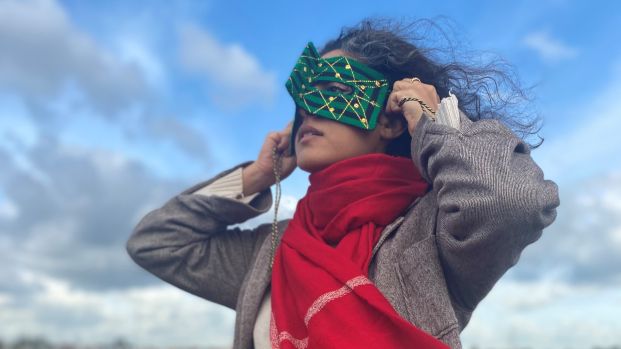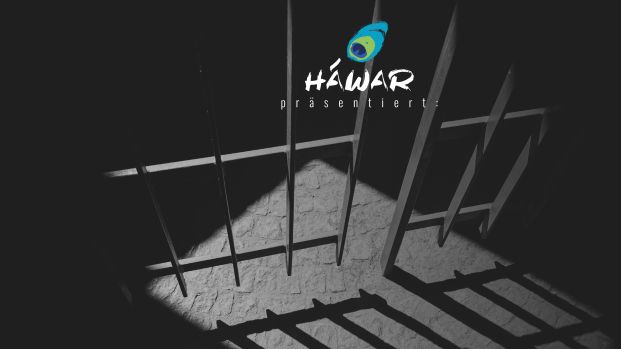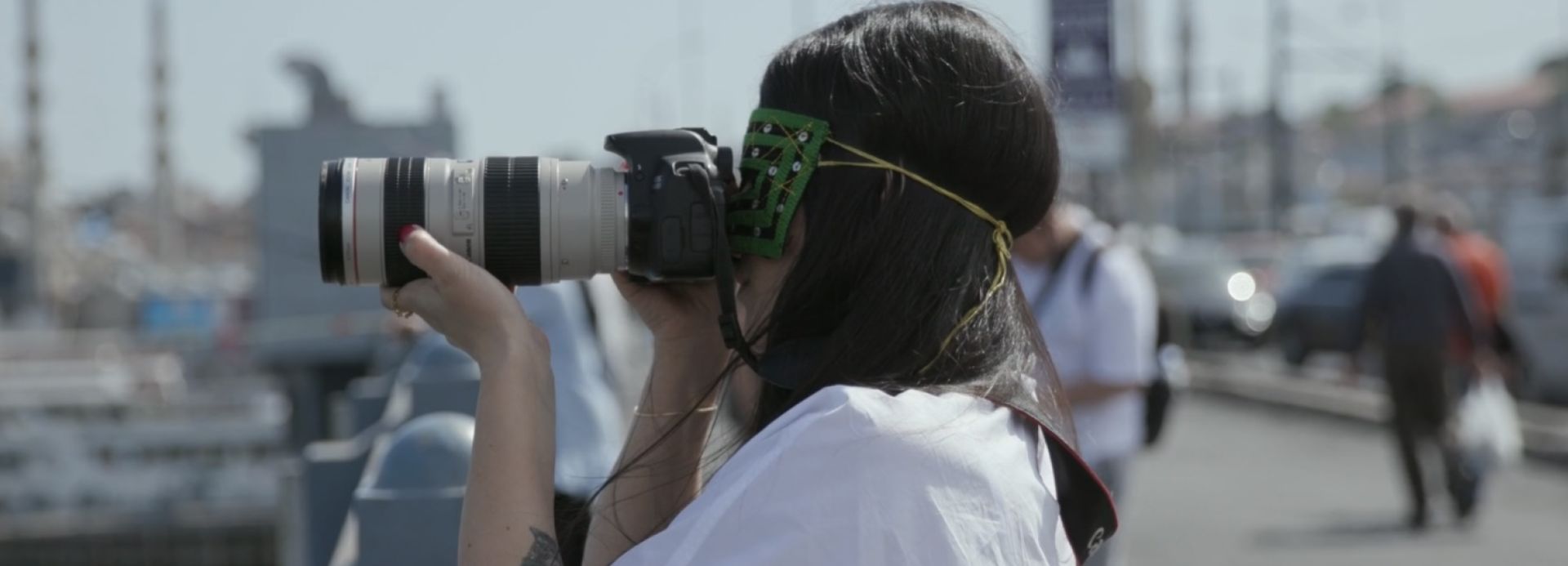
Yasaman Khaleghian is one of the protagonists in the documentary film ‘Sānsūr’, which portrays six Iranian women fighting for freedom. In her essay, Khaleghian gives us insights into her life.
Three years ago, I left Iran, the country of my birth. Now I live in Canada now and have been unable to return to my country due to the possibility of arrest. I am not afraid of prison, but I know it’s much easier to advocate for democracy, speak out against tyranny and make a difference outside of prison. Even if I am far away from Iran.
I have always wanted to travel, write and be a storyteller. My dream is to be able to write the truth without fear of censorship. I still cannot openly do that because the Islamic Republic of Iran continues to silence dissidents abroad by putting pressure on their families in Iran.
The methods that they use include seizing properties and assets, and sometimes arresting dissidents’ close friends and relatives. But this intimidation won’t stop people like me from exposing the regime's crimes, even if it means doing so anonymously. When they block our way, we forge new paths to continue our fight.
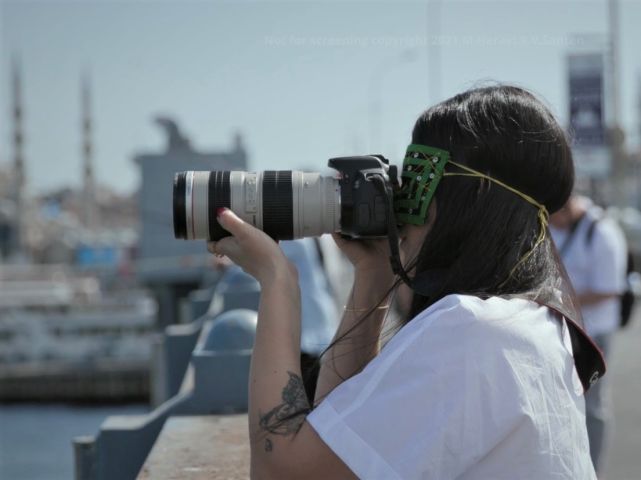
The most surreal moment of my life was leaving Iran with one suitcase. I felt like I no longer belonged anywhere. I was lost. But I had to flee to save my life. I had experienced this once before while enduring long hours of interrogation in custody. There too, I had to remain strong while being humiliated and psychologically tortured by my interrogators. During those endless hours, I was belittled and made to feel like nothing because I was a woman. They would say that I was better off becoming a mother than an activist because my ‘fight ends here’. But I didn’t keep quiet; I talked back despite the stress and horror I was experiencing. I had to stay strong and not lose control.
I began taking my political activism seriously in college, and in my final semester, I was suspended for it. Later, while working as a journalist, I was threatened repeatedly for my reporting. For example, after writing about the acid attacks on women in Isfahan province, where extremists splashed acid into women’s faces for not being dressed properly, I received threats from anonymous individuals who warned me to stop reporting. ‘If you keep pursuing the matter,’ they said, ‘the same fate will await you.’ At work, I was reprimanded for my Instagram account: I was not allowed to post “unveiled” photos of myself.
I also reported on the Ukrainian passenger plane shot down by the Islamic Revolutionary Guard Corps missile on 8 January 2020. Intelligence agents raided my home, claiming I had wrongfully accused the corps of intentionally targeting the airplane. They confiscated my passport and many personal belongings, such as my phone and laptop. They then spent hours interrogating me. I endured verbal abuse and violence. And one of the agents physically assaulted me. They repeatedly brought up my pictures and the private conversations on my phone. They also summoned one of my relatives and interrogated them for seven hours, pressuring them to testify against me. They threatened to arrest my mother and brother if I didn’t write down the confessions they were dictating. They also threatened to add the charge of ‘posing as a journalist on Twitter and Instagram’ to their long list of charges against me. Finally, they banned me from working until my court date.I left Iran before my court date because what mattered the most to me had already been forcibly taken from me. Who was I if I wasn’t a journalist anymore? I had been denied my most basic human right. I also left for my family’s sake. I didn't want them to come into harm’s way because of me.
There was more. My sister-in-law was one of the 176 innocent men, women, and children murdered by the Islamic Revolutionary Guard Corps on flight PS752. My family was going through unimaginable grief, and I didn’t want to add to their stress with the Iranian government’s efforts to silence me. Mustafa Heravi contacted me about two months later and asked to be the narrator of my story.

Due to the psychological pressure of the interrogations and the fear of bringing harm to my family, I suffered in silence with numerous traumas. Despite my attempts to be strong, a part of me remained in Iran, and it wasn’t easy for me to talk about the events that had befallen me. After Mustafa got in contact, I gradually started writing my narrative and sent it to him. Throughout the process, he helped me to be the voice of the suffering that had befallen not just me but also others who have been through similar situations, whether they left the country or remained in Iran to face imprisonment and torture. I had narrated others’ life stories for years, but recounting my own difficult moments was extremely painful. Nevertheless, I eventually found the strength.
This form of storytelling changed my spirit and made me realise that many people need me to be their voice. By sharing and recounting the bitter events, I faced the anger within myself, which gradually helped me to feel that I was not alone. I had no fear of sharing my story, and all I thought about was the fate of the thousands of women in Iran keeping silent until the moment of death.
In Shahrivar last year, just after Mahsa Amini was killed by the Islamic Republic, we witnessed significant changes in Iran, particularly in the women's movement. A powerful social movement took off that challenged the patriarchal structure of the government.
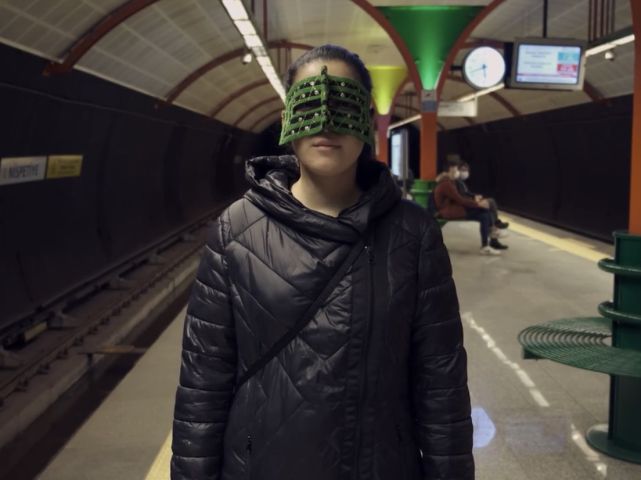
The women who have been struggling against the Islamic Republic for years have, together with newcomers, achieved irreversible achievements within the 100-year-old Iranian women’s movement. Iranian women, who used to live in seclusion, have now been brought to the forefront of world news due to their relentless efforts and struggles, even by the media outlets that often view the Middle East as a single subject of concern, never asking the world powers why they are still afraid to confront such a tyrannical government.
The history of women’s struggle in Iran to eliminate the injustices and inequalities imposed on them based on their gender is a history of ups and downs. On this long path, women have resorted to all possible means to assert their rights, including street and civil protests.The ruling system does not consider women to be humans with equal rights to men. Their fundamental rights have been denied, such as the right to divorce, to have custody of their children, or to have a passport and travel without the approval of their spouses. Therefore, opposition to the Islamic Republic and its elimination mean returning women's fundamental and human rights to them, a path that certainly has not been and will not be easy.
During the recent protests in Iran, we stood not only against compulsory hijab but also against the horrendous state of human rights in the Islamic Republic and the crimes taking place. We witnessed a massive decline in government supporters, especially in the religious sphere. We bore witness to the internal collapse of the government and an unparalleled social transformation, which fundamentally changed many things. Most importantly, there was comprehensive support for women’s rights from the people.Many might think that our activities and resistance will end with forced exile beyond Iran's borders, but they do not know that we will continue with renewed energy because we believe that this government is taking its last breaths. Even if we have the slightest impact in the end, it means we have made our contribution to our country.
The Islamic Republic may not be dismantled with a single shake, but with thorough, consecutive shakes, it will be possible to put an end to this nightmare called the Islamic Republic and its executions. It is not just me – a significant percentage of people believe that tyranny will disappear due to the efforts being made by people in Iran. As we prepare for the first anniversary of Mahsa Amini’s death, people are fighting against the Islamic Republic every day. This can be seen in the number of arrests being made: there is an average of two to three arrests per day, which shows that the women’s revolution in Iran is alive and will continue silently until it can pull its head out of the sand again soon.
The anniversary of ‘Women, Life, Freedom’ will not be the end of the movement or the uprising in Iran. The majority of people in Iran don’t want reform; they want the Islamic Republic to come to an end, and they won’t step back until all criminals have been brought to trial.
‘Woman, Life, Freedom’ has shown the power and potential in the realm of women's rights to engender fundamental changes. The Islamic Republic system has been transformed because of what emerged from the women’s slogan. This movement seeks justice and equality for all Iranians on the basis of individual freedom. Let's not forget that the slogan ‘Women, Life, Freedom’ represents the suppressed demands of all Iranian society, not just those of women. They have targeted the pillars of an ideological system.Long live hope.

